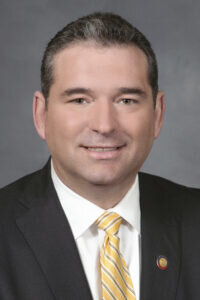
RALEIGH, N.C. -- Over the weekend, the News & Observer published a story entitled While you were sleeping: North Carolina legislators restrict access to public records. This piece has stirred great controversy and debate over one particular provision which, according to a press release from N.C. House Rules Chairman David Lewis (R-Harnett), came at the request of Governor Cooper’s Administration via the Department of Health & Human Services.
The provision in question was included as Section 2.5 in SB 168, which passed the House by a vote of 109-1. According to a summary produced by the nonpartisan Legislative Analysis Division, “Section 2.5 adds a new statute pertaining to the confidentiality of death investigation information and records to provide that all information and records provided by a public entity to the Office of the Chief Medical Examiner concerning a death investigation will retain the same degree of confidentiality it had while in the possession of the public entity and will not become a public record unless the information was a public record while in possession of public entity.”
Lewis’ press release goes on to say that “in layman’s terms, this provision codifies current practices between local governments and the state’s Chief Medical Examiner, in that records retain the same degree of confidentiality as they are shared from local governments to the state. If the record was public when in the possession of a local government, it is still public record as it is shared with the state’s Chief Medical Examiner.”
Rep. Lewis issued the following statement: “In light of current events, there is heightened awareness of public records and death investigations – and rightfully so. Despite misleading claims that this language was passed “swiftly” in the dark of night, the provision in question was requested by Governor Cooper’s DHHS and has been in the public eye for the last 442 nights (14 months). I’ve carefully investigated this issue and found that the provision does not place any new restrictions on public records, and I commit to fixing the provision if the Governor vetoes the bill.”
